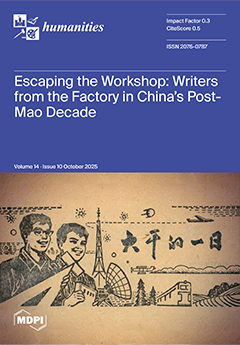In his seminal book
Zakhor: Jewish History and Jewish Memory (1982), renowned historian Yosef Hayim Yerushalmi argues that it is literature and culture, and not historiography, that shaped Jewish collective memory for generations. In Yerushalmi’s telling, the boundaries between historiography and literature, “truth”
[...] Read more.
In his seminal book
Zakhor: Jewish History and Jewish Memory (1982), renowned historian Yosef Hayim Yerushalmi argues that it is literature and culture, and not historiography, that shaped Jewish collective memory for generations. In Yerushalmi’s telling, the boundaries between historiography and literature, “truth” and “myth,” are set and strict. However, the reception of Yerushalmi’s work itself challenges this assumption and obscures the clear-cut distinctions between literature and historiography. This paper reads Yerushalmi’s book alongside its preface, written by Harold Bloom, in an attempt to understand
Zakhor not only as a historiographic argument, but as a narrative of Jewish modernity, a literary meditation, embodying the very shift in collective memory that Yerushalmi himself lamented. The paper then explores the ways in which Yerushalmi’s work has inspired two prominent contemporary American Jewish writers: Joshua Cohen, in his novel
The Netanyahus (2021), and Nicole Krauss, in her short story “Zusya on the Roof” (2013). In their literary work, one can hear echoes of Yerushalmi’s work, distinct and identifiable, yet incorporated in a fictional, imaginative world.
Zakhor thus serves not only as an inspiration but as a catalyst for a deep, insightful rendering of Jewish history and one’s grappling with it.
Full article





